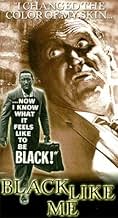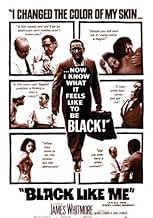Based on the true story of a white reporter who, at the height of the civil-rights movement, temporarily darkened his skin to experience the realities of a black man's life in the segregated... Read allBased on the true story of a white reporter who, at the height of the civil-rights movement, temporarily darkened his skin to experience the realities of a black man's life in the segregated South.Based on the true story of a white reporter who, at the height of the civil-rights movement, temporarily darkened his skin to experience the realities of a black man's life in the segregated South.


































